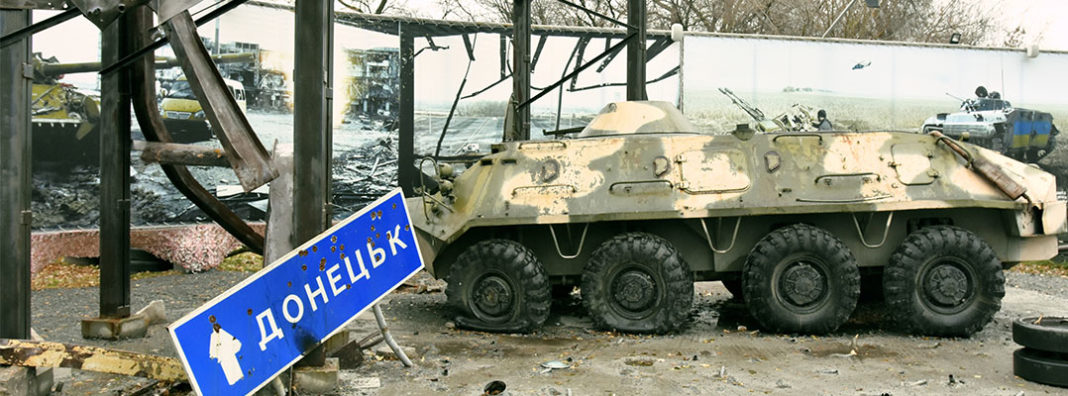
Russia’s invasion of Ukraine is frighteningly reminiscent of Germany’s invasion of Poland in 1939. That same year, Congress considered a bill that would allow 20,000 additional child refugees from Germany. The bill failed.
Let’s not make the same mistake today.
Many members of Congress have expressed a desire to do more to help Ukraine, signaling to President Biden bipartisan support for relief efforts.
But Biden doesn’t need to wait for Congress. He and Secretary Alejandro Mayorkas of the Department of Homeland Security have the power to grant Temporary Protected Status to Ukrainian refugees.
This measure is temporary, but requires nothing more than the stroke of a pen.
Offering Ukrainians protection provides refuge to thousands of people who will otherwise stand in a war zone. Such a move honors America’s ideals.
What history teaches
In March 1939, the US Senate rejected the Wagner-Rogers Child Refugee Bill. The bill would have allowed 20,000 additional refugee children from Germany into the country. The sponsors of the bill, Senator Robert Wagner of New York and Representative Edith Rogers of Massachusetts, were motivated by Kristallnacht, or “the night of broken glass”.
Kristallnacht was an organized, anti-Jewish Nazi program. On November 9 and 10 of 1938, around 30,000 Jewish men and boys were violently swept up into concentration camps. Jewish businesses and synagogues were destroyed—earning the association with broken glass because of the vandalism. Those caught up in it were only allowed to leave the camps after agreeing to leave the country.
Of course, where would they go?
At the time, the US had a strict quota system. Only so many people from each country were allowed in. Germany only got 27,370 slots and all were claimed. People wanting to escape the coming World War by coming to the US ran into an insurmountable paper wall.
In fact, fewer than one in ten German visa applicants were let in—309,782 people were on the waiting list.
The Wagner-Rogers bills would have allowed just 20,000 additional children into the country. In stark terms, the bill was not popular among Americans. A January 1939 poll found that two out of three people opposed admitting 10,000 refugee children from Germany. In March of the same year, only 45 Senators even dared state their opinion on the bill. Twenty-four opposed. Twenty-one in favor. Fifty-five unwilling to say anything because they considered the policy “too hot to handle.”
The issue became so heated in part because of the MS St. Louis’s voyage in May of 1939. The ship, with about 900 Jewish refugees aboard, had been turned away from Cuba. Fearing to return to Germany, the passengers waited off the coast of Florida for permission to enter the US. Close enough, some passengers remarked, to see the lights of Miami.
The plight of the people aboard the St. Louis commanded huge amounts of attention in the US. The conditions of Jewish people in Germany were far from unknown. An introductory note preceding a Washington Evening Star article on June 4, 1939 story, the Washington Evening Star gave context for the motivations of the Jewish passengers on the St. Louis:
Early this year German Jews were not only stripped of practically all their remaining possessions, but deprived of all means of livelihood, being left with only one course—to emigrate. Nations of the world have been extremely reluctant to open their doors to refugees.
But no refuge was offered in the US. The ship sailed back to Europe. Two hundred fifty-four of those refugee passengers later died in the Holocaust. There was never a formal vote on the Wagner-Rogers bill in either the Senate or the House.
Three months after the St. Louis returned and the Wagner-Rogers bill failed World War II began as the Nazi-led Germans invaded Poland.
Today
Today, no one would defend the failure of the Wagner-Rogers bill 84 years ago. Today, no one would defend the decisions in Cuba and the US to turn the St. Louis’s passengers away 84 years ago.
If we fail to take in Ukrainians today, no one will defend our decision 84 years from now.
The events playing out in Ukraine as the Russian military bombs its neighbor’s cities will not be resolved today. Yet today we can make room for those people looking for the refuge that we have been too stingy with in the past.
There are no cases where we have regretted our decision to live up to America’s promise on the Statue of Liberty. But there are too many of the opposite. We must live with the many cases in history that failed to make a new home for the homeless and tempest-tost.
Today, President Biden and Department of Homeland Security Secretary Alejandro Mayorkas should grant Temporary Protected Status (TPS) to Ukrainians. TPS use is clearly warranted given the ongoing armed conflict. For example, the US has already granted TPS to Syrians affected by the ongoing civil war in the country. TPS will allow Ukrainians to come to the US for safety and would authorize them to work in the country.
Congress also has options. It could pass legislation allowing Ukrainians into the country. For example, call it Mia’s Future Bill, after a Ukrainian daughter born in a shelter in Kyiv. It could be one-page long. The bill would grant refugee status to Ukrainians and offer funds for both direct support to Ukrainians and security vetting.
Today is a day for nerve and action on the part of Congress or the President. As the futurist author Arthur C. Clarke wrote in his Profiles of the Future, “history exacts so merciless a penalty” for failures of nerve. We are clearly at risk of making a failure of nerve today. At the end of January, immigration researchers were already calling for TPS for Ukrainians. As of yet, it has not been granted.
Russia’s invasion will have international implications for years to come. Today’s decisions matter. As a whole, international conflicts are endlessly complicated. But taking in refugees is not one of those complex or difficult decisions.
We can do this
In 84 years, our children and the world will celebrate the people who echo former German Chancellor Angela Merkel’s remarks, “We can do this.”
Merkel was announcing her decision to open Germany to about one million Syrian refugees in 2015.
For context, the United States took in fewer than 70,000 refugees in 2015. Germany took in 57 times more refugees than the US did in 2015, even with a much smaller population than the United States and a geographic area the size of New Mexico. This is a massive difference, but it’s not the only one. Our peers like Canada, Australia, and Germany, often take in many more refugees than the US does after accounting for relative size.
America is always at its best when our choices live up to our lofty ideals. Today is a day for living up to them. The best immediate pathway is to grant TPS immediately to Ukrainians.
No regrets.

